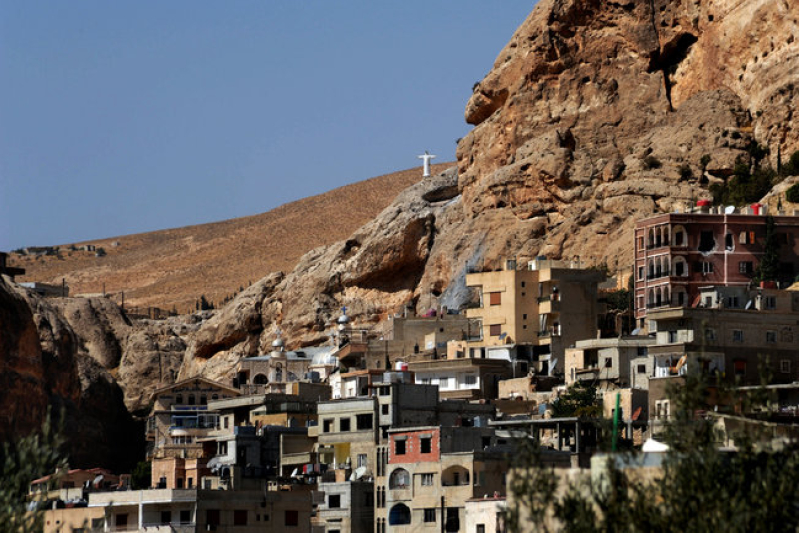Three Syrian Christians were killed over the weekend in the historic Christian village of Maaloula that could be traced back to Jesus. According to fighters, the incursion was led by hardline Islamist al Nursa Front, a group affiliated with Al Qaeda in Iraq, stormed the town, threatening non-Muslims as infidels and assaults residents as they attempt to capture the strategic battleground against Assad's regime.
On Saturday, rebels seized the town. Mother Pelagia Sayaf, who is in charge of Mar Taqla, a monastery in Maaloula that is among the country's oldest, recalled 25 fighters entered the monastery rooms tunneled under the cliffs, including some who appeared to be Saudi, according to the New York Times. However, none of the 53 nuns and orphans was harmed, and a fighter, a local worker, gave his phone number and told the nuns to call if they needed help.
Moreover, some of the rebels filmed themselves talking politely with nuns, instructing fighters no to harm civilians or churches and touring monastery, according to New York Times. They said they had withdrawn from most of the town, and argued that the government had given the fight a sectarian cast by sending Christian militiamen from Damascus to join in.
Although the principle damages of the monastery were shattered windows, the brief encounter did not reassure the nuns that in the long run Syria's Christians would retain the peaceful existence they had long enjoyed. "If Maaloula survives, it will be a miracle," Mother Sayaf told the New York Times. "Maaloula is empty. You see ghosts on the walls."
The Nursa Front, a group with ties to Al Qaeda in Iraq, led the incursion. They moved through the historic village, shouting "Allah Akbar," and assaulted Christian homes and churches, according to the Daily Mail. A witness said that the "militants grabbing five villagers and threatening them saying, 'Either you convert to Islam, or you will be beheaded."
"They shot and killed people," a witness told the Daily Mail. "I heard gunshots and then I saw three bodies lying in the middle of a street in the old quarters of the village." Another one said a church had been torched, and gunmen stormed into two other churches and robbed them.
The mountain village Maaloula is one of the last places in the world where residents still use the ancient language of Aramaic, which was spoken by Jesus and his disciples, and sites within the village are designated as United Nations world heritage site. It has become a key strategic battleground in the Syrian civil war, given its close proximity, 25 miles, to Damascus.

The Daily Mail reported that residents heard several foreign accents among the rebels, including Tunisian, Libyan, Moroccan and Chechen dialects. This report sparked fears that Al Qaeda fighters are being imported into the conflict.
While rebels claimed they have captured the strategic town, Syria's state news agency claimed the rebels had withdrawn and the regime had regained the village, saying: 'The army inflicted heavy losses in the ranks of the terrorists.'
On the battlefield, well-armed radical Islamist groups, including foreign fighters, show little inclination to coordinate with local battalions, and sectarian killings and references to non-Muslims as infidels further intimidate Christians, the New York Times reported. Local fighters in Maaloula affiliated with the Western-backed Free Syrian Army tried and failed to dissuade them from these attacks.
During the more than two years of Syrian war, more than 450,000 Christians have fled their homes, according to church leaders. Meanwhile, more than 100,000 people have died, and over two million Syrian refugees, with the majority of them being children, are living in makeshift tents on the border of neighboring countries.






